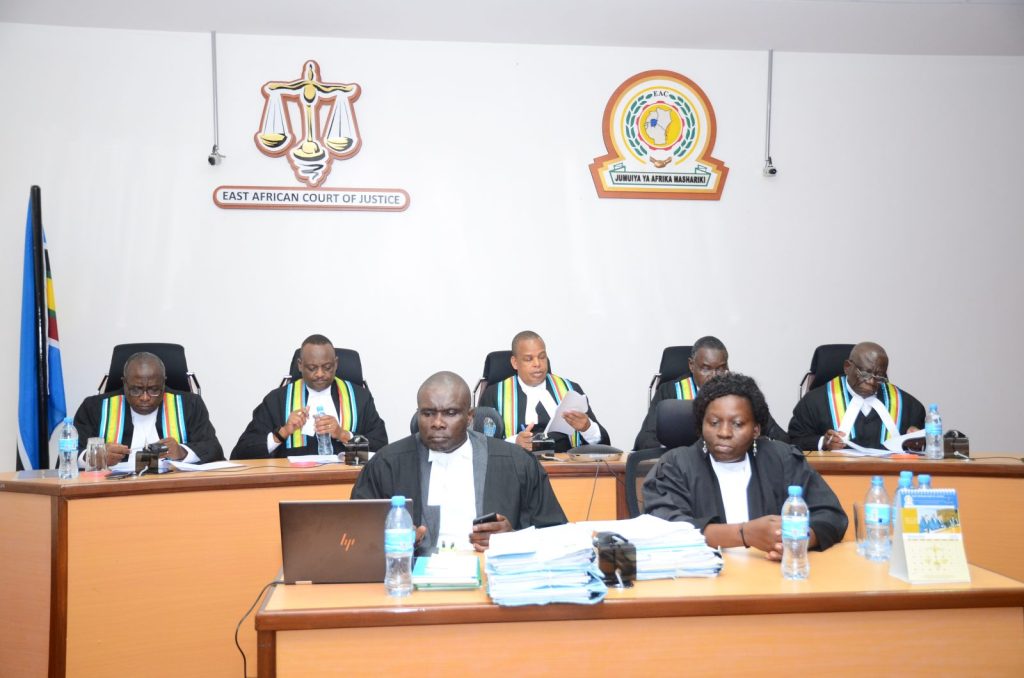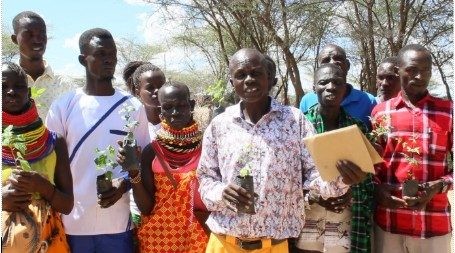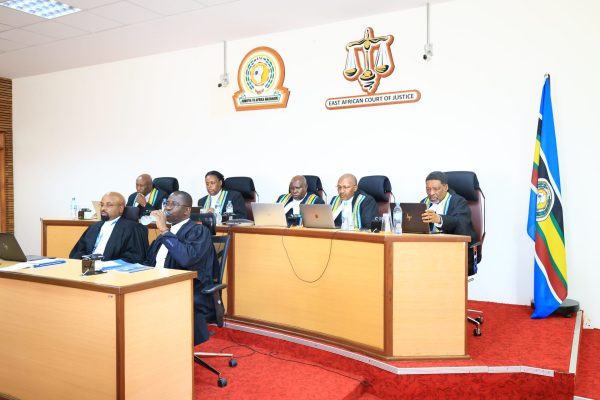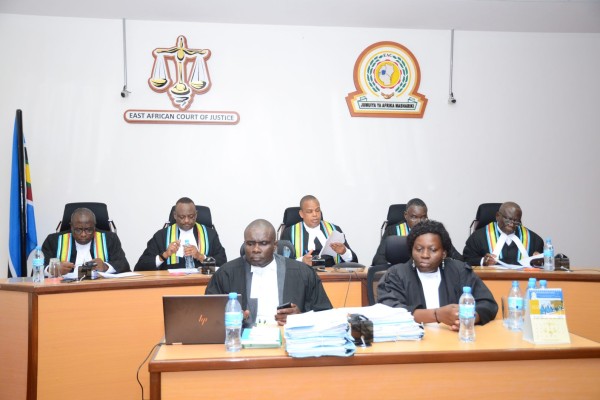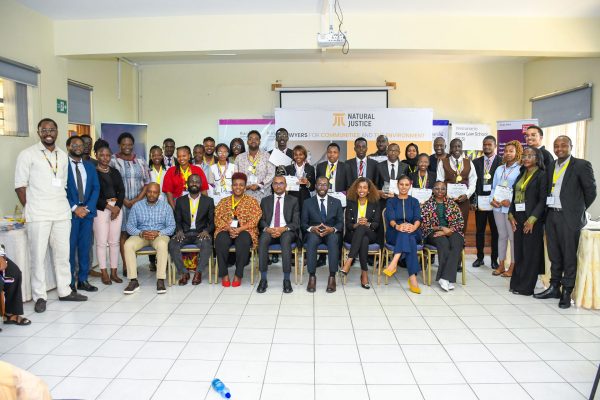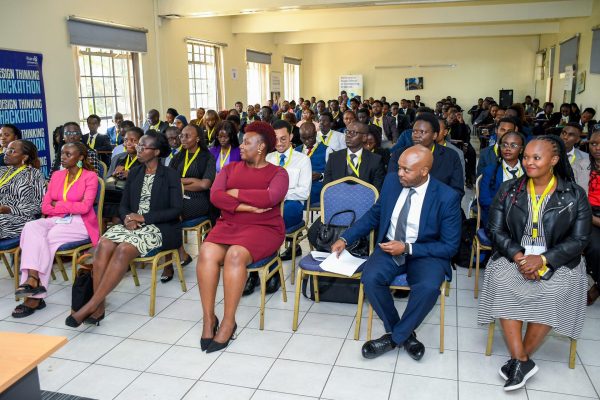More information to be filed
The Appellate Division of the East African Court of Justice (EACJ) yesterday rejected a request by the Tanzanian government for dismissal of an appeal filed by four East African civil society organisations (CSOs) in relation to the EACOP project.
Instead, the court ordered the four CSOs that filed the appeal to file supplementary information to enable the judges to hear the case. The CSOs filed the appeal in December 2023 following the dismissal of their case seeking to stop non-compliance of the EACOP to regional and international laws. The case was dismissed by judges at the First Instance Division of the EACJ in November 2023. The judges averred that the case was filed out of time.
The four CSOs including Africa Institute for Energy Governance (AFIEGO) from Uganda, Centre for Food and Adequate Living Rights (CEFROHT) from Uganda, Natural Justice (NJ) from Kenya and Centre for Strategic Litigation (CSL) from Tanzania, averred otherwise and filed the appeal.
The CSOs hope that the Appellate Division of the EACJ will overturn the dismissal of their case by the First Instance Division, ordering that the case be heard on its merits.
To determine whether the judges at the First Instance Division erred or not in deciding that the case was filed out of time and that they did not have jurisdiction to hear it, the judges of the Appellate Division of the EACJ ordered that the CSOs file the record of proceedings from the First Instance Division. This was at yesterday’s hearing. The record of proceedings includes the CSOs and respondents’ submissions.
The CSOs were ordered to file the record of proceedings by Justice Nestor Kayobera, the president of the Appellate Division of the EACJ, by November 29, 2024.
Other judges in court yesterday included Justice Anita Mugeni, the Vice President of the court, Justice Kathurima M’Inot, Justice Cheboriona Barishaki and Justice Omar Othman Makungu.
Before the above orders were made, Mr. Mark Mulwambo, Tanzania’s Deputy Solicitor General, requested the judges to dismiss the appeal, arguing that the record of proceedings from the hearings held at the First Instance Division were missing. Without it, he argued, the judges at the Appellate Division could not determine whether the First Instance Court erred, or not, in the ruling that they made.
Dr. Rugemeleza Nshala, one of the lawyers of the CSOs, argued that the case should not be dismissed. He noted as follows, “The appeal is not incompetent as argued by Mr. Mulwambo. It is incomplete, and there is a curable solution, which is supplying a complete record of proceedings from the hearings held by the First Instance Division.”
Justice Kayobera agreed, observing as follows, “The court cannot dismiss this appeal because a record of proceedings from the First Instance Division is missing. The appellants [CSOs] and respondents [governments of Uganda and Tanzania as well as the Secretary General of the East African Community] had a shared responsibility to ensure that the record of proceedings was filed.”
He further noted that the appeal was of public interest, and fairness needs to be exercised to enable hearing of the case on its merits. The appeal was adjourned to enable the CSOs to file the record of proceedings from the hearings held by the First Instance Division of the EACJ.
Following the hearing, Mr. Dickens Kamugisha, the CEO of AFIEGO, expressed hope for justice, saying, “This is a landmark human rights, environmental conservation and climate change case. It is therefore fitting that it was heard while the climate change COP is ongoing in Baku, Azerbaijan. The world is watching to see whether the EACJ will act in the interest of communities, nature and climate, by ordering that the First Instance Court hears our case on its merits. We hope that when the complete record of proceedings is supplied, the court will champion people and climate action over fleeting profits for corporations.”
Mr. Dale Onyango from Natural Justice said, “At the heart of this case is the livelihood of community members who bear the brunt of every delay and adjournment. Nonetheless, we applaud the court in considering the plight of the project affected persons and calling for curing of the deficiencies on the record of appeal as opposed to throwing out the case. We look forward to prosecuting our appeal and pursuing justice for the communities.”
Mr. Onyango is one of the lawyers litigating the case.
Ms. Amina Acola, one of the lawyers involved in the case added, “There is huge public interest in this case as evidenced by the fact that many EACOP-affected people travelled all the way from Uganda to Arusha to witness the hearing. The communities have been disappointed by other courts, but they remain hopeful that the EACJ will deliver justice.”
Mr. Gozanga Kyakulubya, an EACOP-affected person who travelled from Kyotera district in Southern Uganda to Arusha for the hearing, stated, “I came to the court because I have a lot of pain. My land was taken for the EACOP and before I was paid, it was fenced off. I was also sued by the government of Uganda because I rejected low compensation from EACOP. We need at least one court to be fair to EACOP host communities and we hope that the East African Court of Justice will be that court.”
Background
The legal challenge, initially filed on November 6, 2020, is part of an ongoing campaign by the four civil society organisations to halt the EACOP project, which is being spearheaded by French oil company TotalEnergies and China National Offshore Oil Corporation (CNOOC), in partnership with the governments of Uganda and Tanzania. The CSOs argue that the project violates numerous international conventions, including the Universal Declaration of Human Rights, African Charter on Human and People’s Rights, the Paris Climate Agreement, and various regional environmental agreements.
The EACOP is set to transport crude oil from Uganda to the Tanzanian port of Tanga, passing through environmentally sensitive areas and impacting local communities who have not been adequately consulted. The CSOs argue that the project’s potential social, environmental, and climate risks were not sufficiently assessed prior to its commencement.

